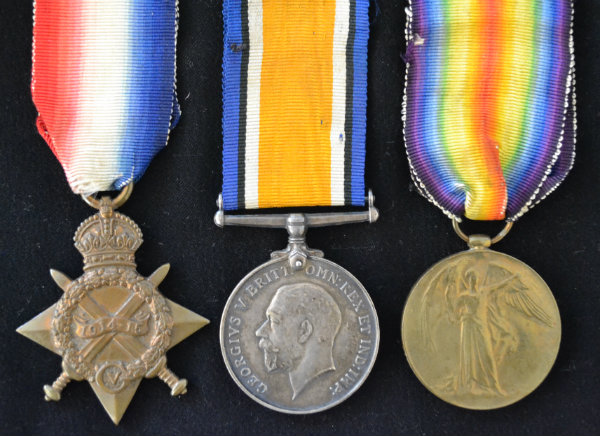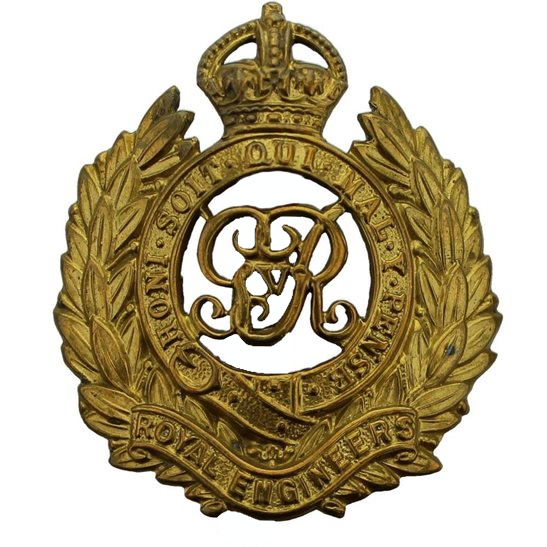Personal Details
Born: 10 October 1889.
Family: The fifth child of Stephen and Mary Gorham of 140 Wrexham Road, Whitchurch, Shropshire. John married Margaret Roberts on the 10 October 1918 and together they had 2 children – Mary and John B.
Civilian Occupation: John followed in his father’s footsteps and became a plumber, initially working with his father after leaving school.
Residence: The 1919 Absent Voters’ Register shows his address as 16 Talbot Street. In 1939 the family lived at 11 Claypit Street, Whitchurch, Shropshire.
Died: On 10 June 1959 aged 69.
Military Details
Regiment: Royal Engineers (previously King’s Royal Rifle Corps)
Rank: Sapper
Service Number: 278763 (previously 343331 and C/1034)
Date of Enlistment: 10 November 1914
Date of Discharge: 1 April 1919
Reason for Discharge: Demobilisation
Other Information: He enlisted at the age of 25 and joined the King’s Rifle Corps before being transferred to the Royal Engineers. It may be that John was wounded in 1917 and transferred to the Royal Engineers after his recovery. There are two service numbers with the KRRC C/1034 & C/1035. This latter number has the name G D Gorham who was wounded.
John was awarded the Campaign Medals (1914/15 Star, British War Medal, and Victory Medal).

The 1914 Star (also known as 'Pip') was authorised under Special Army Order no. 350 in November 1917 and by an Admiralty Fleet Order in 1918, for award to officers and men of the British and Indian Expeditionary Forces who served in France or Belgium between 5 August and midnight of 22–23 November 1914. The former date is the day after Britain's declaration of war against the Central Powers, and the closing date marks the end of the First Battle of Ypres.
The 1914–15 Star (also known as 'Pip') was instituted in December 1918 and was awarded to officers and men of British and Imperial forces who served against the Central European Powers in any theatre of the Great War between 5 August 1914 and 31 December 1915. The period of eligibility was prior to the introduction of the Military Service Act 1916, which instituted conscription in Britain.
The British War Medal (also known as 'Squeak') was a silver or bronze medal awarded to officers and men of the British and Imperial Forces who either entered a theatre of war or entered service overseas between 5th August 1914 and 11th November 1918 inclusive. This was later extended to services in Russia, Siberia and some other areas in 1919 and 1920. Approximately 6.5 million British War Medals were issued. Approximately 6.4 million of these were the silver versions of this medal. Around 110,000 of a bronze version were issued mainly to Chinese, Maltese and Indian Labour Corps. The front (obv or obverse) of the medal depicts the head of George V. The recipient's service number, rank, name and unit was impressed on the rim.
The Allied Victory Medal (also known as 'Wilfred') was issued by each of the allies. It was decided that each of the allies should each issue their own bronze victory medal with a similar design, similar equivalent wording and identical ribbon. The British medal was designed by W. McMillan. The front depicts a winged classical figure representing victory. Approximately 5.7 million victory medals were issued. Interestingly, eligibility for this medal was more restrictive and not everyone who received the British War Medal ('Squeak') also received the Victory Medal ('Wilfred'). However, in general, all recipients of 'Wilfred' also received 'Squeak' and all recipients of The 1914 Star or The 1914/1915 Star (also known as 'Pip') also received both 'Squeak' and 'Wilfred'. The recipient's service number, rank, name and unit was impressed on the rim.

